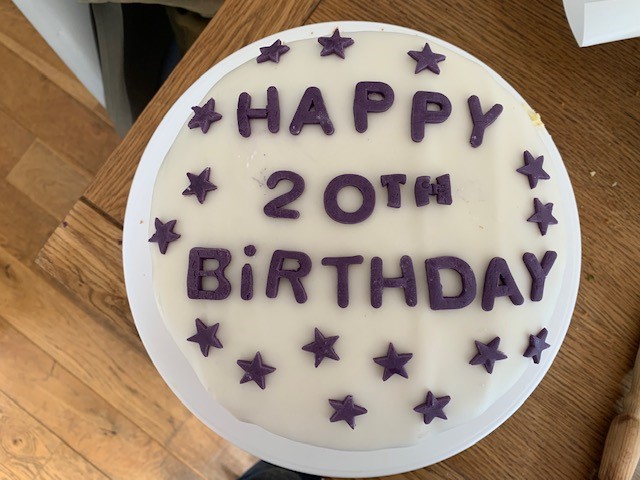20 years ago my archive career started with crates on the floor
I arrived at the School on 2nd July 2002 as an enthusiastic Archivist, ready to establish my first Archives Service. I was to be the first professional Archivist employed by the London School of Hygiene and Tropical Medicine (LSHTM). This was not an insignificant challenge as there was little funding. My post was only funded for three years. A sliding scale of full time for the first year, part time for second and third time for third year. Eight of the collections had been catalogued to a high level by AIM25 staff. The Ross collection also had been listed to item level but not catalogued to archival standards. The rest of the collections were in crates on the floor. There was no search room, no procedures and limited interest in the archives or the history of the School.

The archive has come a long way
Fast forward 20 years and we are an accredited service. We have three permanent staff (two part time Archivists and one full time Assistant). We have two storage areas, a new beautiful search room and an ever increasing workload! Our collections include material on tropical medical specialists such as Sir Ronald Ross. He discovered mosquitoes transmitted malaria, and Sir Patrick Manson, the founder of LSHTM. We also hold material on topics such as nutrition and HIV/AIDS. In addition we have a large collection of maps and the administrative records of the institution. We run the institution’s records management service and are involved in certain aspects of information governance. We are also hoping to purchase a digital preservation system in the near future and progress this project, which has stalled in recent years due to lack of resources.


Over the intervening period, the service has developed in various ways and we have been spread pretty thin at times. We have taken on responsibility for Freedom of Information, aspects of Data Protection, image management and research data management. These services have now all moved to other areas. This should have freed up our time, however it has been filled up with other activities. On the other hand image management has remained the same as it is a shared responsibility with our Communications team
20 years on and developing the profile of the archive
The archives still face some of the same issues that it did when I arrived, including a lack of funding. We have to raise external funding for the core activity of cataloguing. We have received over £250,000 from the Wellcome Trust’s Research Resources in Medical History fund. It unfortunately no longer exists. We are only able to catalogue small collections within the team. Large collections can remain untouched for years and our backlog is growing. We are going to trial a workshop approach. We schedule to have dedicated sessions to sort and appraise collections as a team. This will improve on just one person facing the daunting task of reviewing large collections.
There is still a lack of visibility for the Archives Service. We are continually trying to promote the service through dissemination activities. One area which has recently raised our profile internally is our Decolonising the Archives initiative. At the archive we have developed five areas where we are changing our practice: cataloguing, archival practice, dissemination, education and inclusivity. We have shown the value of our service through taking a new and innovative approach to these issues. We have also shown the value of us as professionals using our skills in supporting the work of the School.
Reflecting back
Undeniably, if you’d asked me in 2002 if I would still be at the School in 2022, I would have said ‘no way’. I had no particular ambitions but probably thought I would end up back in business archives, where I had started. Or perhaps working with women’s history collections, which was where my interests lay during university. However, I find myself now with a fairly good knowledge of malaria and mosquitoes, HIV and AIDS. I can even do a tour of our Keppel Street building in my sleep.

There are still many opportunities and challenges. Decolonising / inclusive practice, tackling the cataloguing backlog as well as promoting the collections and digital preservation. I am looking forward to working on these with the team in the future.
We are writing a series of reflective blogs using the archives of the service. The blogs cover different aspects of the service and recall various projects that we have worked on. These are available on the LAORS blog and further information on the service is available on our website.
By Victoria Cranna, Archivist & Records Manager, London School of Hygiene & Tropical Medicine
Further Information
- Visit our blog using the archives of the school: News and Features.
Related Posts



